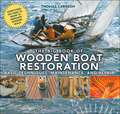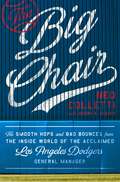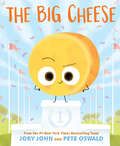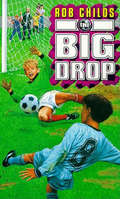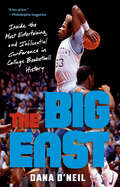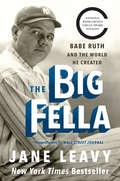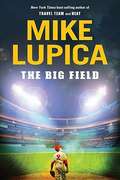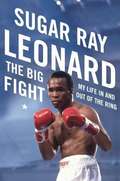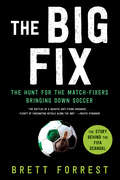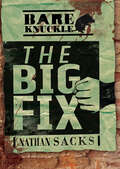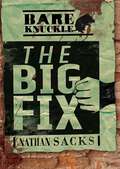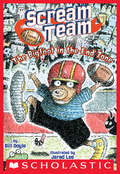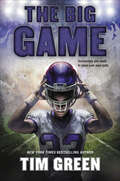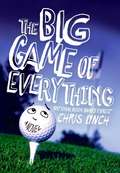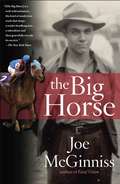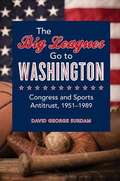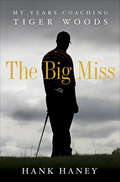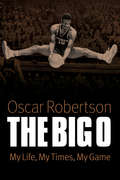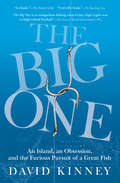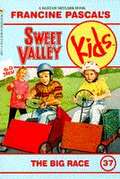- Table View
- List View
The Big Book of Wooden Boat Restoration: Basic Techniques, Maintenance, and Repair
by Thomas LarssonAn excellent manual for embarking on a wooden boat restoration project.The Big Book of Wooden Boat Restoration is the perfect introduction or reference guide for both novice and experienced wooden boat enthusiasts. Author Thomas Larsson, one of Sweden’s most experienced and premier wooden boat restorers, has compiled his knowledge of the craft for readers and placed it in this book. This ultimate guide to restoration contains useful facts and an extensive glossary, accessible to both new hobbyists and longtime boat lovers.Also within this book are chapters on boat care, including winter maintenance, racing, finishing, and stripping. Additionally, there is updated information on boat building, gluing, and tools. The most extensive part of this book consists of chapters that describe the detailed clean repair of wooden boats-everything from plug accession and bonding to changing socks and bottom engine installation.Larsson includes a history of boat building and provides a nice glimpse of different wooden boats with more than two hundred sketches and photos in both color and black-and-white. He explains how staying on top of maintenance keeps a unique fleet of wooden boats alive. With practical instructions and fact boxes with advice and tips, this book will teach you all about maintenance: surface treatment, scraping the hull, equipping the boat in the spring, and looking after it in the winter. Also included are tips on buying a boat, installing an engine, and more.Skyhorse Publishing, as well as our Sports Publishing imprint, is proud to publish a broad range of books for readers interested in sports-books about baseball, pro football, college football, pro and college basketball, hockey, or soccer, we have a book about your sport or your team.In addition to books on popular team sports, we also publish books for a wide variety of athletes, including books on running, cycling, horseback riding, swimming, tennis, martial arts, golf, camping, hiking, aviation, boating, and so much more. While not every title we publish becomes a New York Times bestseller or a national bestseller, we are committed to publishing books on subjects that are sometimes overlooked by other publishers and to authors whose work might not otherwise find a home.
The Big Break
by Cara LockwoodSometimes you just have to dive in... Since the tsunami nearly ended his career a year ago, extreme surfer Kai Brady has kept a dark secret: he's terrified to get back on his board. With everything he's worked for on the line, Kai needs a miracle...and a kick-ass trainer. That "miracle" is single mom Jun Lee. Jun Lee can see that the heartbreakingly gorgeous surfer who'd selflessly rescued her son when disaster struck now needs to be saved himself. But the attraction between them proves to be a force stronger than the ocean, and just as dangerous.
The Big Chair: The Smooth Hops and Bad Bounces from the Inside World of the Acclaimed Los Angeles Dodgers General Manager
by Ned Colletti Joseph A. Reaves“An important contribution to 21st-century baseball literature. . . Mr. Colletti’s book might be even more groundbreaking [than Moneyball] in some ways: It’s a nearly unprecedented opportunity to see what running a baseball franchise looks like through the eyeballs of an actual general manager. . . [Colletti] has a gift for entertaining storytelling. . . These are stories modern general managers rarely tell, except in late-night gatherings at their favorite bars with people they know and trust. So to read them here, told in such colorful detail, makes you feel as if Ned Colletti has just invited you to plop down on the next bar stool.” --Wall Street Journal “Ned Colletti is a baseball treasure with fascinating stories to tell from inside the game. The Big Chair is your all-access pass. After reading this book, you will not only understand the job of a general manager better but also the game of baseball itself.”—Tom Verducci, author of The Cubs Way and co-author of The Yankee YearsAn unprecedented, behind-the-scenes look at the career of famed former Los Angeles Dodgers General Manager (a position also known as “The Big Chair”), whose tenure spanned nine of the most exciting and turbulent years in the franchise’s history. During his tenure with the Dodgers, Colletti had the highest winning percentage of any general manager in the National League. In The Big Chair, he lets readers in on the real GM experience from his unique vantage point—sharing the inner workings of three of the top franchises in the sport, revealing the out-of-the-headlines machinations behind the trades, the hires and the deals; how the money really works; how the decision-making really works; how much power the players really have and why—the real brass tacks of some of the most pivotal decisions made in baseball history that led to great success along with heartbreak and failure on the field. Baseball fans will come for the grit and insight, stay for the heart, and pass it on for the wisdom. Ned Colletti began his MLB career with his beloved hometown team, the Chicago Cubs, more than 35 years ago. He worked in Chicago for a dozen years and was in the front office when the Cubs won the National League East in 1984 and 1989, after which he moved on as director of baseball operations for the SF Giants. By 1996, he became the Assistant GM for the Giants, before being hired as the GM in Los Angeles in 2006. There he oversaw the Dodgers through the highly publicized and acrimonious divorce battle between Frank and Jamie McCourt that culminated in the equally highly publicized sale of the team. He was present at the press conference where Don Mattingly, having just watched his team eliminated from the playoffs, used the post-season conference to vehemently discuss his lack of a contract extension. He brought marquee names like Greg Maddux and Clayton Kershaw to LA, as well as marquee drama with the likes of Manny Ramirez and Yasiel Puig; hired future Hall of Famer Joe Torre as manager; and oversaw fourteen Dodgers playoff wins. And these are just a few of the highlights. Colletti serves up a huge dish of first-hand experiences with some of the biggest names in baseball history (Barry Bonds, Greg Maddux, Don Mattingly, Don Zimmer, Tommy Lasorda, Scott Boras, Vin Scully, and more). From his humble early years living in a Chicago garage to his path to one of the most prestigious positions in professional sports, his very public and illustrious career has left a permanent handprint in the history of America's sport—and now he's ready to share the insight only those who have sat in The Big Chair have ever seen.
The Big Cheese (The Food Group)
by Jory John Pete OswaldDon’t miss the seventh picture book in the #1 New York Times bestselling Food Group series from Jory John and Pete Oswald! <p><p> The Big Cheese is the best at everything, and brags about it, too. When the annual Cheese-cathlon comes around, the Big Cheese is prepared to win, as always. But what happens when the quiet new kid, Wedge Wedgeman, comes out on top? Is a slice of humility all the Big Cheese needs to discover that some things are better than being the best? <p><p> Jory John and Pete Oswald serve up another heaping plate of laughs and lessons with this empowering, witty, and charming addition to their #1 New York Times bestselling series! <P><P><i>Advisory: Bookshare has learned that this book offers only partial accessibility. We have kept it in the collection because it is useful for some of our members. Benetech is actively working on projects to improve accessibility issues such as these.</i> <p> <b>New York Times Bestseller</b>
The Big Drop
by Rob ChildsThe end of the season is approaching and Danebridge School football team faces relegation down a league - unless they can win a few last-minute games. Can Chris Weston, their skipper and goalkeeper, pull the team together and get the vital results the team needs so badly? If he fails, it's the big drop for Danebridge...
The Big East: Inside the Most Entertaining and Influential Conference in College Basketball History
by Dana O'NeilThe definitive, compulsively readable story of the greatest era of the most iconic league in college basketball history—the Big East&“This book captures the inside of a special time in Big East basketball. If you love the game, this book is a must read!&”—Jim Calhoun, former University of Connecticut men&’s basketball coachThe names need no introduction: Thompson and Patrick, Boeheim and the Pearl, and of course Gavitt. And the moments are part of college basketball lore: the Sweater Game, Villanova Beats Georgetown, and Six Overtimes. But this is the story of the Big East Conference that you haven&’t heard before—of how the Northeast, once an afterthought, became the epicenter of college basketball.Before the league&’s founding, East Coast basketball had crowned just three national champions in forty years, and none since 1954. But in the Big East&’s first ten years, five of its teams played for a national championship. The league didn&’t merely inherit good teams; it created them. But how did this unlikely group of schools come to dominate college basketball so quickly and completely?Including interviews with more than sixty of the key figures in the conference&’s history, The Big East charts the league&’s daring beginnings and its incredible rise. It transports fans inside packed arenas to epic wars fought between transcendent players, and behind locker-room doors where combustible coaches battled even more fiercely for a leg up.Started on a handshake and a prayer, the Big East carved an improbable arc in sports history, an ensemble of Catholic schools banding together to not only improve their own stations but rewrite the geographic boundaries of basketball. As former UConn coach Jim Calhoun eloquently put it, &“It was Camelot. Camelot with bad language.&”
The Big Fella: Babe Ruth and the World He Created
by Jane LeavyFrom Jane Leavy, the award-winning, New York Times bestselling author of The Last Boy and Sandy Koufax, comes the definitive biography of Babe Ruth—the man Roger Angell dubbed "the model for modern celebrity." <p><p>He lived in the present tense—in the camera’s lens. There was no frame he couldn’t or wouldn’t fill. He swung the heaviest bat, earned the most money, and incurred the biggest fines. Like all the new-fangled gadgets then flooding the marketplace—radios, automatic clothes washers, Brownie cameras, microphones and loudspeakers—Babe Ruth "made impossible events happen." <p><p>Aided by his crucial partnership with Christy Walsh—business manager, spin doctor, damage control wizard, and surrogate father, all stuffed into one tightly buttoned double-breasted suit—Ruth drafted the blueprint for modern athletic stardom.His was a life of journeys and itineraries—from uncouth to couth, spartan to spendthrift, abandoned to abandon; from Baltimore to Boston to New York, and back to Boston at the end of his career for a finale with the only team that would have him. There were road trips and hunting trips; grand tours of foreign capitals and post-season promotional tours, not to mention those 714 trips around the bases. <p><p>After hitting his 60th home run in September 1927—a total that would not be exceeded until 1961, when Roger Maris did it with the aid of the extended modern season—he embarked on the mother of all barnstorming tours, a three-week victory lap across America, accompanied by Yankee teammate Lou Gehrig. Walsh called the tour a "Symphony of Swat." The Omaha World Herald called it "the biggest show since Ringling Brothers, Barnum and Bailey, and seven other associated circuses offered their entire performance under one tent." <p><p>In The Big Fella, acclaimed biographer Jane Leavy recreates that 21-day circus and in so doing captures the romp and the pathos that defined Ruth’s life and times. Drawing from more than 250 interviews, a trove of previously untapped documents, and Ruth family records, Leavy breaks through the mythology that has obscured the legend and delivers the man. <P><b>A New York Times Bestseller</b>
The Big Field
by Mike LupicaPlaying shortstop is a way of life for Hutch-not only is his hero, Derek Jeter, a shortstop, but so was his father, a former local legend turned pro. Which is why having to play second base feels like demotion to second team. Yet that's where Hutch ends up after Darryl "D-Will" Williams, the best shortstop prospect since A-Rod, joins the team. But Hutch is nothing if not a team player, and he's cool with playing in D-Will's shadow-until, that is, the two shortstops in Hutch's life betray him in a way he never could have imagined. With the league championship on the line, just how far is Hutch willing to bend to be a good teammate?
The Big Fight
by Michael Leonard Sugar Ray ArkushThe Big Fight is Sugar Ray Leonard's unflinching autobiography, revealing the Olympic hero and world champion in five weight divisions, and the man who struggled with depression, rage, drug addiction and greed. One of six children in a chaotic impoverished family, Ray started boxing as a teenager. His remarkable talent and determination guaranteed his swift rise through the ranks of amateur boxing, culminating in his gold medal win at the 1976 Olympics. In the 1980s his remarkable fights against 'Marvelous' Marvin Hagler, Thomas Hearns and Roberto Duran u known collectively as the 'Four Kings of the Ring' u revolutionised the sport. This legendary series of fights made Leonard the star at the centre of the golden era of modern boxing, and, next to Ali, the biggest ever draw in the sport's history. Leonard tells of the gruelling workouts, the fierce competition, and the notorious corruption he encountered within the sport as he battled to become a champion. With candour and humour he comes to terms with the contradictions that tormented him. Despite his enormous strength, focus and discipline, he was a serial adulterer who suffered bouts of rage and succumbed to alcohol and drug addiction. In examining his victories and failures, Sugar Ray Leonard presents a remarkable portrait of the rise, fall, and ultimate redemption of a true fighter u both inside and outside of the ring.
The Big Fix
by Brett ForrestCan the most beloved sport in the world beat the corruption that threatens to tear it apart?Known as the "beautiful game," soccer is the world's most popular sport, crossing borders and language barriers to entertain billions. But underneath it all--the raucous fans in the stadiums; the beloved players; and FIFA, the international governing body with a membership of 209 national associations--is a scandal that threatens to make soccer the ugliest sport in the world. An underworld of international gambling rings, corrupt players and officials, and shadowy figures preys on the far-flung edges of the game, making match-fixing in soccer one of organized crime's new, profitable businesses. Now, for the first time, journalist Brett Forrest takes us inside the $700 billion international soccer betting market. In 2013 Europol revealed that more than 700 international matches have been fixed since 2008. Forrest pulls back the curtain, exposing a web of nefarious dealings across the world, even on U.S. soil, with opportunistic fixers bribing players, influencing officials, and staging fake matchups, while Asian criminal syndicates pull the strings. No match is safe--not even the World Cup tournament--especially while local law enforcement officials lack the resources and the will to investigate. But one man has taken on this criminal enterprise: Chris Eaton, a hardheaded Australian, longtime Interpol director, and the former head of security for FIFA. Forrest follows Eaton's journey from local beat cop to FIFA's security chief for the 2010 World Cup in South Africa. It was at this competition that Eaton first grasped the extent of match-fixing and the threat it posed to the game. From that point on, Eaton made it his mission to track down the elusive perpetrators: fixers who shed identities, crisscross borders, and target players and clubs on behalf of international criminal syndicates. Filled with headline-making revelations, The Big Fix is a must-read for soccer fans and true crime aficionados. The story brings us inside Chris Eaton's hunt for the world's biggest fixers and their backers--from the roots of fixing in Singapore and Kuala Lumpur, to FIFA headquarters in Zurich and World Cup preparation in South Africa and Qatar, to fixing's expansion into nearly every country in the world--and the fight to save the beautiful game.
The Big Fix (Bareknuckle Ser.)
by Nathan SacksGeorge Choogart has just stepped off the boat to Manhattan. In England, he was a teenage star reporter. But he'll have to prove himself all over again if he wants an American newspaper job. When George stumbles across the Woodrat, an underground boxing club, he realizes he's found his next story. The Woodrat's owner shows George a world of corruption—a world that might be too dangerous for either of them. Woodrat staffers are disappearing. Big Jim Dickinson, one of New York's wealthiest men, might be to blame. But if George wants to stop Big Jim, he'll have to conquer the boxing ring first.
The Big Fix (Bareknuckle)
by Nathan SacksGeorge Choogart has just stepped off the boat to Manhattan. In England, he was a teenage star reporter. But he'll have to prove himself all over again if he wants an American newspaper job. When George stumbles across the Woodrat, an underground boxing club, he realizes he's found his next story. The Woodrat's owner shows George a world of corruption—a world that might be too dangerous for either of them. Woodrat staffers are disappearing. Big Jim Dickinson, one of New York's wealthiest men, might be to blame. But if George wants to stop Big Jim, he'll have to conquer the boxing ring first.
The Big Fix: The Hunt for the Match-Fixers Bringing Down Soccer
by Brett Forrest<p>Can the most beloved sport in the world beat the corruption that threatens to tear it apart? <p>Known as the "beautiful game," soccer is the world's most popular sport, crossing borders and language barriers to entertain billions. But underneath it all--the raucous fans in the stadiums; the beloved players; and FIFA, the international governing body with a membership of 209 national associations--is a scandal that threatens to make soccer the ugliest sport in the world. An underworld of international gambling rings, corrupt players and officials, and shadowy figures preys on the far-flung edges of the game, making match-fixing in soccer one of organized crime's new, profitable businesses. <p>Now, for the first time, journalist Brett Forrest takes us inside the $700 billion international soccer betting market. In 2013 Europol revealed that more than 700 international matches have been fixed since 2008. Forrest pulls back the curtain, exposing a web of nefarious dealings across the world, even on U.S. soil, with opportunistic fixers bribing players, influencing officials, and staging fake matchups, while Asian criminal syndicates pull the strings. <p>No match is safe--not even the World Cup tournament--especially while local law enforcement officials lack the resources and the will to investigate. But one man has taken on this criminal enterprise: Chris Eaton, a hardheaded Australian, longtime Interpol director, and the former head of security for FIFA. Forrest follows Eaton's journey from local beat cop to FIFA's security chief for the 2010 World Cup in South Africa. It was at this competition that Eaton first grasped the extent of match-fixing and the threat it posed to the game. From that point on, Eaton made it his mission to track down the elusive perpetrators: fixers who shed identities, crisscross borders, and target players and clubs on behalf of international criminal syndicates. <p>Filled with headline-making revelations, <i>The Big Fix</i> is a must-read for soccer fans and true crime aficionados. The story brings us inside Chris Eaton's hunt for the world's biggest fixers and their backers--from the roots of fixing in Singapore and Kuala Lumpur, to FIFA headquarters in Zurich and World Cup preparation in South Africa and Qatar, to fixing's expansion into nearly every country in the world--and the fight to save the beautiful game.
The Big Foot in the End Zone: The Big Foot in the End Zone (Scream Team #3)
by Bill DoyleAre you ready for some Bigfoot-ball?Karl and the rest of the Scream Team kick off football season with a new monster on the squad! It's Dr. Neuron's nephew. And this cranky creature is pulling out every prank to keep victory on the sidelines. Not good news for Karl who's howling ready to play in the Wolfenstein Muck Bowl, or for Beck whose big feet have become the league's biggest joke. One thing's for sure, the game of football has never been so funny!
The Big Game
by Tim GreenNew York Times bestselling author and former NFL defensive end Tim Green encourages readers to fight for their dreams in this heartfelt story about a young football star grappling with the stress of living up to his father’s name. Perfect for fans of Mike Lupica! <P><P>Danny Owens is dedicating his seventh-grade season to his Super Bowl champion father, who recently passed away. Danny promises everyone that, just like his dad, he’ll dominate the big game at the end of the season and earn a spot on the high school varsity team. <P><P>Then his English teacher catches him cheating on a test. Even though Danny can retake it, he knows there’s no point. He can’t read. And if Danny can’t pass this class, he won’t be eligible to play in the championship game that could unlock his future. <P><P>While his resentment rises against the only person willing to help him win off the field, the pressure to succeed begins to weigh heavily on Danny’s shoulders. Danny is being tested on every level now, and to pass, he may very well have to choose a different path from his father’s.
The Big Game from the Black Lagoon
by Mike ThalerIn this book from the hilarious Black Lagoon Adventure series , Hubie's class has to play a football game against the older kids in school.
The Big Game of Everyhting
by Chris LynchYou have to love your family. You do, even if you don't, right? You don't have to understand them or play tennis with them, but you have to love them. It's a rule, and it's the kind of rule you don't break unless you're some kind of animal. My brother happens to be some kind of animal. My sister rides this sweet gold Honda scooter and has amazing hair. You'd hate her. My parents are vegetarian let-the-sunshine-in freaks. Lovable freaks but freaks all the same. My grandfather possesses a shocking comb-over, a kilt, about half of his original marbles, and his own golf complex. This summer, we are all working for him. It is going to be two hot, lucrative, carefree months of paradise. Or, possibly something else.
The Big Hit (Rigby PM Plus Blue (Levels 9-11), Fountas & Pinnell Select Collections Grade 3 Level Q #Yellow (Levels 6-8))
by Jenny Giles Betty GreenhatchAdapted from a favourite PM title, The Big Hit, this PM Oral Literacy Little Play has been specifically crafted for level 6 readers. Students will love performing as their favourite PM characters! The PM Oral Literacy Little Plays motivate students to project and adapt their voices, while exploring the meaning of these carefully levelled texts. Comprehensive teaching notes are included on the inside front cover of each book.
The Big Horse
by Joe Mcginniss"The big horse," in racing vernacular, is the animal that brings fame and fortune to a stable. He's the heavyweight champion, the All-American quarterback, the four-legged Michael Jordan of the barn. Seabiscuit was once Tom Smith's "big horse." A generation ago, Secretariat was Lucien Lauren's. In 2003, Funny Cide was Barclay Tagg's. In sixty years as a trainer, P. G. Johnson had never had one -- until Volponi. P. G. Johnson was a blue-collar wizard, a hardscrabble tough guy who had come east from Chicago, determined to make his mark on New York. And he did. He became leading trainer at all three New York tracks -- Saratoga, Belmont, and Aqueduct -- as well as at Florida's Tropical Park. And he did it without ever winning a Triple Crown or Breeders' Cup event, or having "the big horse." "I never knew how to kiss rich people's asses, and I got too old to learn. If no owner was going to give me a big horse, I figured I'd have to find one myself," he said. He did that, in his seventies, buying a mare for $8,000, breeding her to a $20,000 stallion, and in 1998 producing Volponi, the horse that would change his life. In October 2002, weakened by surgery and radiation treatment for cancer, P. G. watched Volponi -- the longest shot in the field at 43 to 1 -- bring home more than $2 million by winning the Breeders' Cup Classic, the richest race in America. The following summer at Saratoga, McGinniss -- journalist, investigative reporter, and horse racing obsessive -- began showing up, more Tuesdays with Morrie than Guys and Dolls, at P. G.'s barn in the predawn hours to listen to the inside racing stories and lore P. G. had gathered. McGinniss came to appreciate that Johnson was not only a stellar horseman but an American original whose wit and wisdom carried far beyond the confines of the racetrack. As for Volponi, the big horse had given P. G. the perfect Disney ending with the Breeders' Cup victory, and, indeed, Disney soon bought film rights to P. G.'s life story. "He'll be even better next year," P. G. had said, but by the time McGinniss got to Saratoga, Volponi had not won a race in nine months. His faith undiminished, P. G. continued to race Volponi against the best, at Saratoga and beyond, until in the end it came down to the 2003 Breeders' Cup Classic in Santa Anita, a race only one horse in history had ever won twice. As fires burned in the Southern California hills, Volponi -- with Funny Cide's jockey, Jose Santos, in the saddle -- ran the last race of his life. This book is about what happened that day, about what came after, and about much of what had come before. It's the most exciting, rewarding, and heartwarming story about the world of horse racing that you'll ever read, by one of America's finest writers, at the top of his form.
The Big Leagues Go to Washington: Congress and Sports Antitrust, 1951-1989
by David George SurdamBetween 1951 and 1989, Congress held a series of hearings to investigate the antitrust aspects of professional sports leagues. Among the concerns: ownership control of players, restrictions on new franchises, territorial protection, and other cartel-like behaviors. In The Big Leagues Go to Washington, David Surdam chronicles the key issues that arose during the hearings and the ways opposing sides used economic data and theory to define what was right, what was feasible, and what was advantageous to one party or another. As Surdam shows, the hearings affected matters as fundamental to the modern game as broadcasting rights, player drafts and unions, league mergers, and the dominance of the New York Yankees. He also charts how lawmakers from the West and South pressed for the relocation of ailing franchises to their states and the ways savvy owners dodged congressional interference when they could and adapted to it when necessary.
The Big Miss: My Years Coaching Tiger Woods
by Hank HaneyThe Big Miss is Hank Haney's candid and surprisingly insightful account of his tumultuous six-year journey with Tiger Woods, during which the supremely gifted golfer collected six major championships and rewrote golf history. Hank was one of the very few people allowed behind the curtain. He was with Tiger 110 days a year, spoke to him over 200 days a year, and stayed at his home up to 30 days a year, observing him in nearly every circumstance: at tournaments, on the practice range, over meals, with his wife, Elin, and relaxing with friends. The relationship between the two men began in March 2004 when Hank received a call from Tiger in which the golf champion asked him to be his coach. It was a call that would change both men's lives. Tiger--only 28 at the time--was by then already an icon, judged by the sporting press as not only one of the best golfers ever, but possibly the best athlete ever. Already he was among the world's highest paid celebrities. There was an air of mystery surrounding him, an aura of invincibility. Unique among athletes, Tiger seemed to be able to shrug off any level of pressure and find a way to win. But Tiger was always looking to improve, and he wanted Hank's help. What Hank soon came to appreciate was that Tiger was one of the most complicated individuals he'd ever met, let alone coached. Although Hank had worked with hundreds of elite golfers and was not easily impressed, there were days watching Tiger on the range when Hank couldn't believe what he was witnessing. On those days, it was impossible to imagine another human playing golf so perfectly. And yet Tiger is human--and Hank's expert eye was adept at spotting where Tiger's perfection ended and an opportunity for improvement existed. Always haunting Tiger was his fear of "the big miss"--the wildly inaccurate golf shot that can ruin an otherwise solid round--and it was because that type of blunder was sometimes part of Tiger's game that Hank carefully redesigned his swing mechanics. Hank's most formidable coaching challenge, though, would be solving the riddle of Tiger's personality. Wary of the emotional distractions that might diminish his game and put him further from his goals, Tiger had developed a variety of tactics to keep people from getting too close, and not even Hank--or Tiger's family and friends, for that matter--was spared "the treatment." Toward the end of Tiger and Hank's time together, the champion's laser-like focus began to blur and he became less willing to put in punishing hours practicing--a disappointment to Hank, who saw in Tiger's behavior signs that his pupil had developed a conflicted relationship with the game. Hints that Tiger hungered to reinvent himself were present in his bizarre infatuation with elite military training, and--in a development Hank didn't see coming--in the scandal that would make headlines in late 2009. It all added up to a big miss that Hank, try as he might, couldn't save Tiger from. There's never been a book about Tiger Woods that is as intimate and revealing--or one so wise about what it takes to coach a superstar athlete.
The Big O: My Life, My Times, My Game
by Oscar P. RobertsonPerhaps the greatest all-around player in basketball history, Oscar Robertson revolutionized basketball as a member of the Cincinnati Royals and won a championship with the Milwaukee Bucks. When he was twenty-three, in 1962, he accomplished one of basketball’s most impressive feats: averaging the triple-double in a single season—a feat never matched since. Cocaptain of the Olympic gold medal team of 1960; named the player of the century by the National Association of Basketball Coaches; named one of the fifty greatest players in NBA history; and inducted into the Basketball Hall of Fame in 1980—Robertson’s accolades are as numerous as they are impressive. But The Big O is also the story of a shy black child from a poor family in a segregated city; of the superstar who, at the height of his career, became the president of the National Basketball Players Association to try to improve conditions for all players. It is the story of the man forced from the game at thirty-four and blacklisted from coaching and broadcasting. But two years after he left basketball, after six years of legal wrangling, Robertson won his lawsuit against the NBA, eliminating the option clause that bound a player to a single NBA team in perpetuity and ending restrictions on free agency. The Big O is the story of how the NBA, as we now know it, was built; of race in America in the second half of the twentieth century; and of an uncompromising man and a complex hero.
The Big One: An Island, an Obsession, and the Furious Pursuit of a Great Fish
by David KinneyPublished to rave reviews in hardcover and purchased by DreamWorks in a major film deal, The Big One is a spellbinding and richly atmospheric work of narrative journalism in the tradition of Friday Night Lights. Here is the story of a community-Martha’s Vineyard, Massachusetts-and a sporting event-the island’s legendary Striped Bass & Bluefish Derby-that is rendered with the same depth, color, and emotional power of the best fiction. Among the characters, we meet: Dick Hathaway, a crotchety legend who once caught a bluefish from a helicopter and was ultimately banned for cheating; Janet Messineo, a recovering alcoholic who says that striped bass saved her life; Buddy Vanderhoop, a boastful Native American charter captain who guides celebrity anglers like Keith Richards and Spike Lee; and Wyatt Jenkinson, a nine-year-old fishing fanatic whose mother is battling brain cancer. At the center of it all is five-time winner Lev Wlodyka, a cagey local whose next fish will spark a storm of controversy and throw the tournament into turmoil.Much more than just a book for fishing enthusiasts, The Big One is an exhilarating story of passion and obsession-and a powerful testament to the dreams that keep us all going.
The Big Race (Sweet Valley Kids #37)
by Molly Mia Stewart Francine PascalElizabeth and Jessica Wakefield can't wait to build and race their own cars in the upcoming soapbox derby. Ken Matthews keeps bragging about how great his car is, and the twins are determined to beat him. They know they can do it if they work together -- but they have a big fight right before the race. Can the twins make up in time to win? Don't miss any of the books in this exciting series!
